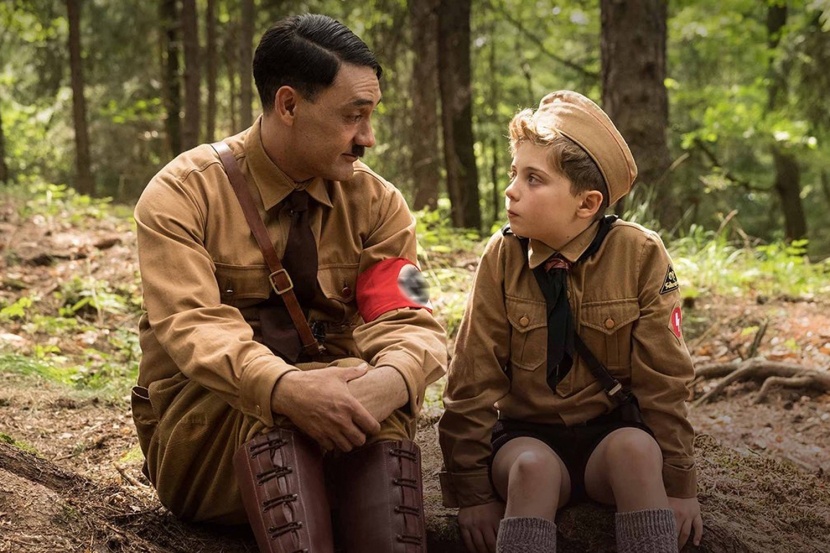Breathtakingly risky but worthy under scrutiny, Jojo Rabbit dates back long before Waititi’s Marvel success, to 2012, when the circulating screenplay, an adaptation of Christine Leunens’s somber novel Caging Skies, was celebrated as brilliant but unfilmable. (Waititi’s real subject is difficult boyhood; his second feature was called Boy.)
Jojo Rabbit has a child’s perspective, that of a naive, lonely 10-year-old, Jojo (Roman Griffin Davis), who, in the voice of Waititi’s cartoonish Hitler, is the “bestest, most loyal little Nazi I’ve ever seen.” If you hope to roll with the film’s laughs, you’ll have to embrace this intentionally immature set-up, one that shows us a frenzied Jojo running down the street in his brown shirt to the German version of the Beatles’ I Want to Hold Your Hand. Otherwise, the anachronisms will play harshly. Waititi has conceived his Third Reich with deliberate broadness: There’s a strutting kids-camp counsellor (Sam Rockwell), a vicious secretary (Rebel Wilson) and a towering geek of a Gestapo agent (Stephen Merchant), all of whom nail their comic parts with po-faced perfection.
Should we be laughing at all this, though? Very rarely does Jojo Rabbit sober up and tell you not to (unlike, say, the poundingly hypocritical Life Is Beautiful), even as its ideas snowball and become bolder. In a sequence filmed like a haunted-house pursuit, Jojo discovers a teen, Elsa (Leave No Trace’s extraordinary Thomasin McKenzie, injecting a bit of sisterly teasing), living inside his home’s walls, a waif secretly harboured by his playful single mum (Scarlett Johansson).
Somehow, imperceptibly, he turns the relationship into one of endearment (Jojo grows up a little) and that’s what makes the film a keeper. In its precision, Jojo Rabbit may remind you of Wes Anderson’s The Grand Budapest Hotel, another comedy in which clownish forces of fascism square off against love, humour and elegance. Both movies feel like they come from the same universe, down to Waititi’s ear for a well-deployed pop tune. Jojo Rabbit isn’t perfect; sometimes it strains to reconcile Waititi’s more relaxed beats with his visual fussiness. But he’s legitimately breaking new ground. Hopefully, Jojo will find an audience that gets it.

